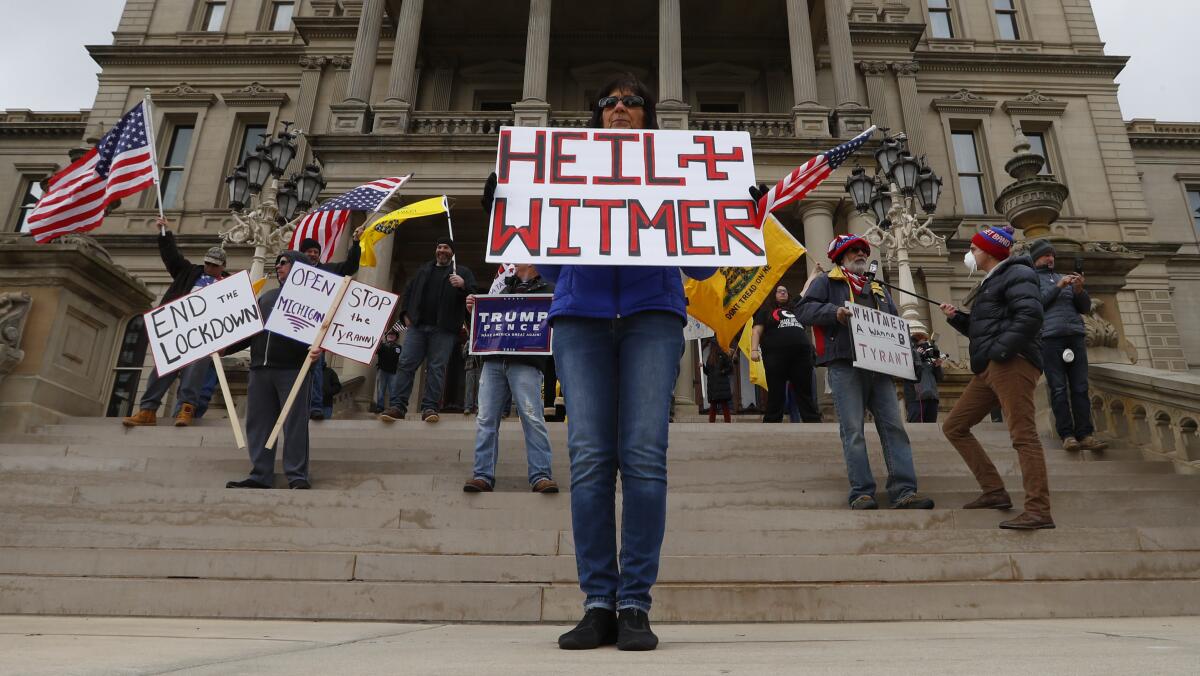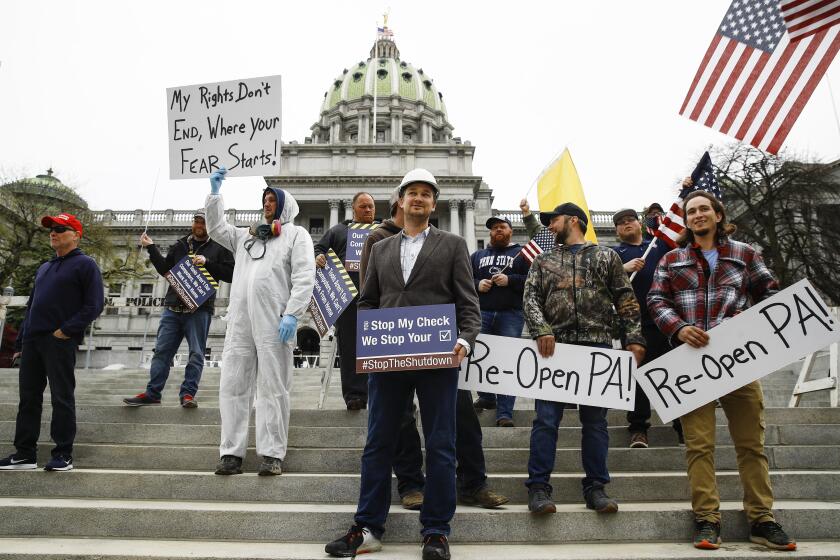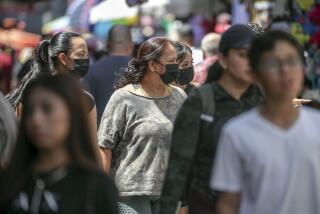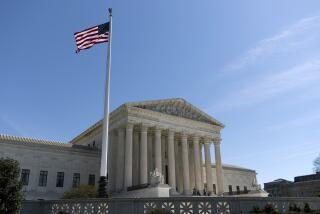Op-Ed: Yes, the government can restrict your liberty to protect public health

- Share via
Can the government restrict individual liberties to stop the spread of COVID-19? It’s a question being raised by protesters and in lawsuits filed to contest government-imposed restrictions.
There have been very few Supreme Court cases involving the government’s power to deal with the spread of communicable diseases. The most relevant decision for today was issued in Jacobson vs. Massachusetts in 1905. In that case, the Supreme Court upheld the constitutionality of a state law requiring compulsory vaccinations against smallpox. The court declared, “Upon the principle of self-defense, of paramount necessity, a community has the right to protect itself against an epidemic of disease which threatens the safety of its members.”
The court explicitly rejected the claim that “liberty” under the Constitution includes the right of individuals to make decisions about their own health in instances where those decisions could endanger others. But the court also made clear that restrictions imposed by the government to control communicable diseases must have a “real or substantial relation” to protecting public health.
Under this standard, there is no doubt that quarantine, “shelter in place,” and closure requirements are constitutional as a way of stopping the spread of COVID-19, even though they restrict freedom.
Throughout American history, quarantine orders have been upheld as valid exercises of the police power possessed by state and local governments. Not long after the Revolutionary War, Philadelphia imposed a quarantine to stop the spread of yellow fever. In 1799, Congress, by statute, recognized the power of states to impose quarantines. In 1926, the Supreme Court ruled that “a state, in the exercise of its police power, may establish quarantines against human beings, or animals, or plants.” Most recently, in 2016, a federal district court in New Jersey upheld a quarantine order for a nurse who had returned from Africa after treating Ebola patients.
The power to quarantine is not unlimited, however, and courts should invalidate orders that do not have a “real and substantial” relation to public health. In 1900, for example, a federal district court declared unconstitutional a quarantine order in San Francisco to stop the spread of bubonic plague because it was “clear that it is made to operate against the Chinese population only” and was based on racism, not public health needs.
Life is slowly returning to normal in some parts of the U.S. amid the coronavirus pandemic. But health experts warn a rapid reopening could quickly go wrong.
At this stage, after a week when COVID-19 was second only to heart disease as the leading cause of death in the United States, courts unquestionably should uphold orders for quarantine, shelter in place, and closure of nonessential businesses. All are designed to stop the transmission of a highly communicable disease that, if left unchecked, could overwhelm the healthcare system.
These orders are constitutional even when they preclude people from assembling for religious worship. A number of lawsuits have been filed by those who wish to gather for religious services, saying they have a 1st Amendment right to gather. But the Supreme Court has been clear that there is no exception to general laws for religion. Moreover, if people gather in large groups for this or any other purpose there is the serious risk of spreading COVID-19.
But this does not mean that the government can do whatever it wants in the name of stopping the spread of a communicable disease. There is always a danger that government might use its power as an excuse for unnecessary restrictions on freedom. This has occurred during our current crisis in countries including Hungary, which canceled elections, and Thailand and Jordan, which have restricted speech critical of the government.
In the United States, a number of states have adopted regulations preventing abortions, including medically induced abortions that involve no surgical procedure at all. It is hard to see how such restrictions have a “real and substantial” relationship to stopping the spread of COVID-19 as opposed to attempts to use the crisis as a pretext for imposing additional limits on abortion.
And courts would probably look skeptically on banning a religious service if it involved people staying in their cars in a parking lot — a drive-in service, as some churches have instituted. Such gatherings present no valid public health threat, since they do not involve interpersonal contact.
Still, most closure orders are clearly constitutional. The right to swing your fist stops at another person’s nose. With coronavirus, your freedom stops when it endangers others by facilitating transmission of a highly communicable disease.
Erwin Chemerinsky is dean of the UC Berkeley School of Law and a contributing writer to Opinion.
More to Read
A cure for the common opinion
Get thought-provoking perspectives with our weekly newsletter.
You may occasionally receive promotional content from the Los Angeles Times.











